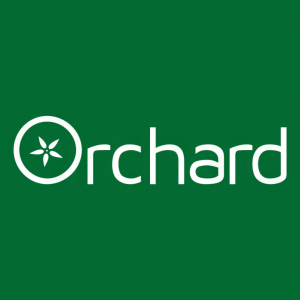Orchard Therapeutics Announces Agreement with the Beneluxa Consortium Enabling Reimbursed Access to Libmeldy
BOSTON and LONDON, Jan. 25, 2024 (GLOBE NEWSWIRE) -- Orchard Therapeutics, a global gene therapy leader, today announced the company has reached an agreement with the Beneluxa Initiative on Pharmaceutical Policy (Beneluxa) enabling reimbursed access to Libmeldy® (atidarsagene autotemcel), a hematopoietic stem cell (HSC) gene therapy, approved for the treatment of early-onset metachromatic leukodystrophy (MLD). The agreement covers several member countries, including Belgium, The Netherlands, and Ireland. It follows similar arrangements made with reimbursement authorities in the United Kingdom (UK), Italy, Germany, Sweden, Iceland, Finland and Norway, and is a key component of the company’s geographic expansion plans.
MLD is a rare, fatal genetic disorder caused by a mutation in the gene responsible for encoding the enzyme arylsulfatase A (ARSA) leading to neurological damage and developmental regression. In its most severe form, babies develop normally but in late infancy start to rapidly lose the ability to walk, talk and interact with the world around them. These children may require 24-hour care, and the majority pass away within five years of disease onset, creating an enormous burden on patients, their families and health care systems.
Libmeldy aims to correct the underlying genetic cause of MLD by inserting a working copy of the ARSA gene into the genome of a patients’ own HSCs. The genetically repaired cells are infused back into the patient, where they can naturally migrate across the blood-brain barrier into the central nervous system, engraft, and express the functional enzyme. This approach has the potential to persistently restore enzymatic function with a single treatment. In clinical trials, treatment with Libmeldy resulted in the preservation of cognitive development and maintenance of motor function past ages at which untreated patients showed severe cognitive and motor impairments. With more than a cumulative 250 patient-years of follow-up, Libmeldy was generally well-tolerated, with no treatment-related serious adverse events or deaths. Most adverse events were associated with busulfan conditioning or background disease.
“Following its approval, health technology assessment authorities across Europe have continued to recognize the impact of Libmeldy commensurate with its clinical, economic and societal value,” said Robin Kenselaar, senior vice president, EMEA at Orchard Therapeutics. “We are pleased to have reached an agreement with the Beneluxa consortium that enables sustainable access to treatment. The agreement came after the acceptance of additional long-term data and marks a reversal of the outcome from earlier negotiations with the consortium which ended without reaching an arrangement. We remain committed to broadening access to this important therapy in new geographies for the benefit of eligible patients and their families.”
Libmeldy is approved by the European Commission (EC) and UK Medicines and Healthcare products Regulatory Agency (MHRA). Libmeldy is known as OTL-200 in the U.S., where it is currently under Priority Review by the Food and Drug Administration (FDA) with a Prescription Drug User Fee Act (PDUFA) goal date of March 18, 2024.
Additional European Commercial Updates
Multiple eligible MLD patients are currently in the treatment process and expected to receive Libmeldy in the coming months. This includes the first patient treated at the company’s qualified center in Utrecht, The Netherlands. Following administration, patients will have been treated at all six of the company’s initially qualified treatment centers in Europe. Additional centers in Spain and Saudi Arabia are currently in the final stages of qualification and are expected to be ready to treat MLD patients with Libmeldy in the near future.
About MLD
MLD is a rare and life-threatening inherited disease of the body’s metabolic system estimated to occur in approximately one in every 100,000 live births based on existing literature. MLD is caused by a mutation in the arylsulfatase-A (ARSA) gene that results in the accumulation of sulfatides in the brain and other areas of the body, including the liver, gallbladder, kidneys, and/or spleen. Over time, the nervous system is damaged, leading to neurological problems such as motor, behavioral and cognitive regression, severe spasticity and seizures. Patients with MLD gradually lose the ability to move, talk, swallow, eat and see. In its late infantile form, mortality at five years from onset is estimated at 50 percent and 44 percent at 10 years for juvenile patients.i
About Libmeldy / OTL-200
Libmeldy (atidarsagene autotemcel), also known as OTL-200, has been approved by the European Commission for the treatment of metachromatic leukodystrophy (MLD) in patients characterized by biallelic mutations in the ARSA gene leading to a reduction of the ARSA enzymatic activity in children with i) late infantile or early juvenile forms, without clinical manifestations of the disease, or ii) the early juvenile form, with early clinical manifestations of the disease, who still have the ability to walk independently and before the onset of cognitive decline. Libmeldy is the first therapy approved for eligible patients with early-onset MLD.
The most common adverse reaction attributed to treatment with Libmeldy was the occurrence of anti-ARSA antibodies. In addition to the risks associated with the gene therapy, treatment with Libmeldy is preceded by other medical interventions, namely peripheral blood mobilization and apheresis, followed by myeloablative conditioning, which carry their own risks. During the clinical studies of Libmeldy, the safety profiles of these interventions were consistent with their known safety and tolerability.
For more information about Libmeldy, please see the Summary of Product Characteristics (SmPC) available on the EMA website.
Libmeldy is approved in the European Union, UK, Iceland, Switzerland, Liechtenstein and Norway. OTL-200 is an investigational therapy in the U.S.
Libmeldy was developed in partnership with the San Raffaele-Telethon Institute for Gene Therapy (SR-Tiget) in Milan, Italy.
About Orchard Therapeutics
Orchard Therapeutics, a Kyowa Kirin company, is a global gene therapy leader focused on ending the devastation caused by genetic and other severe diseases by discovering, developing, and commercializing new treatments that tap into the curative potential of hematopoietic stem cell (HSC) gene therapy. In this approach, a patient’s own blood stem cells are genetically modified outside of the body and then reinserted, with the goal of correcting the underlying cause of disease with a single treatment.
Founded in 2015, Orchard’s roots go back to some of the first research and clinical developments involving HSC gene therapy. Our team has played a central role in the evolution of this technology from a promising scientific idea to a potentially life-transforming reality. Today, Orchard is advancing a pipeline of HSC gene therapies designed to address serious diseases where the burden is immense for patients, families and society and current treatment options are limited or do not exist.
For more information, please visit www.orchard-tx.com, and follow us on X (Twitter) and LinkedIn.
_____________________
iMahmood et al. Metachromatic Leukodystrophy: A Case of Triplets with the Late Infantile Variant and a Systematic Review of the Literature. Journal of Child Neurology 2010, DOI: http://doi.org/10.1177/0883073809341669








